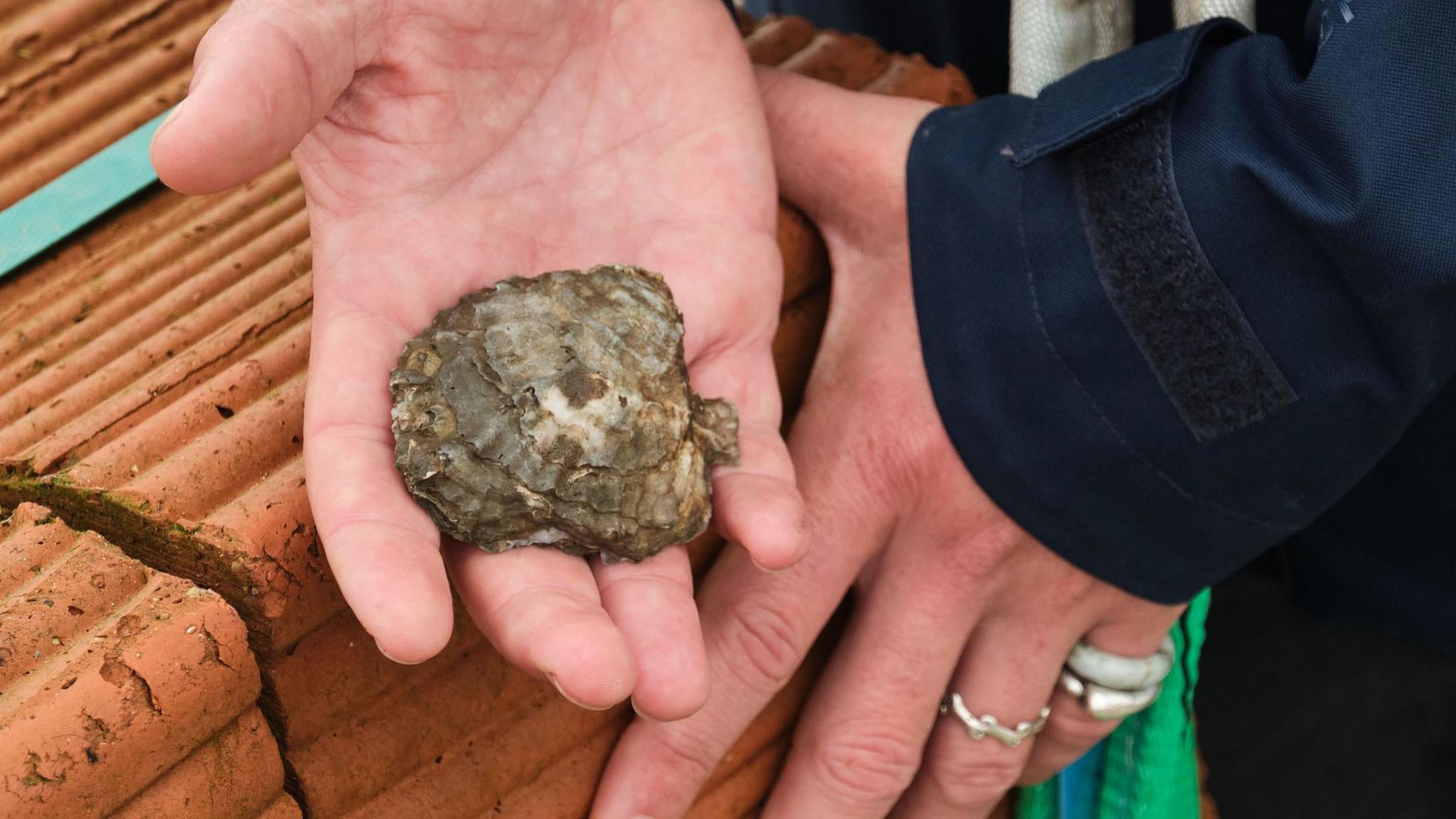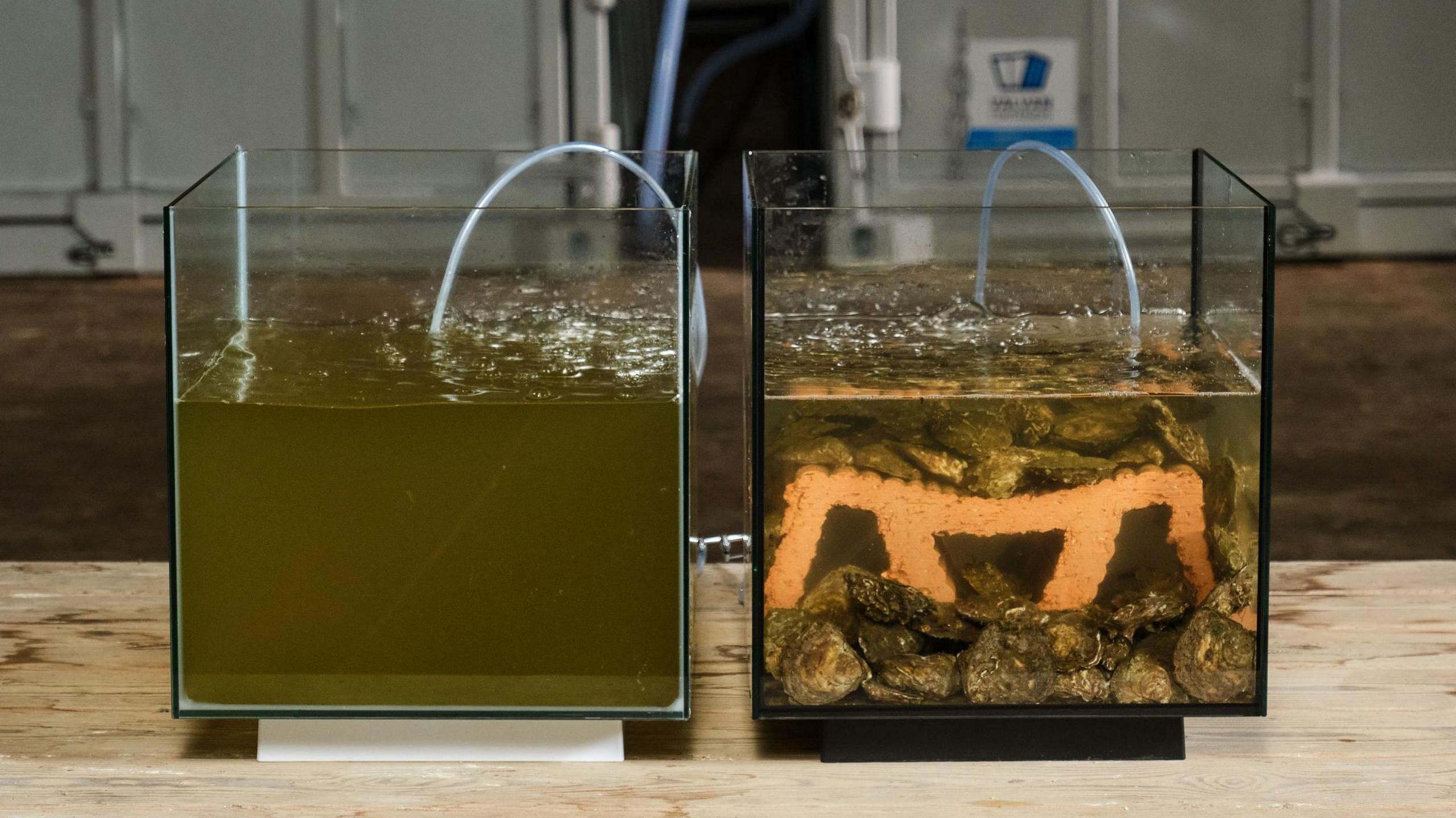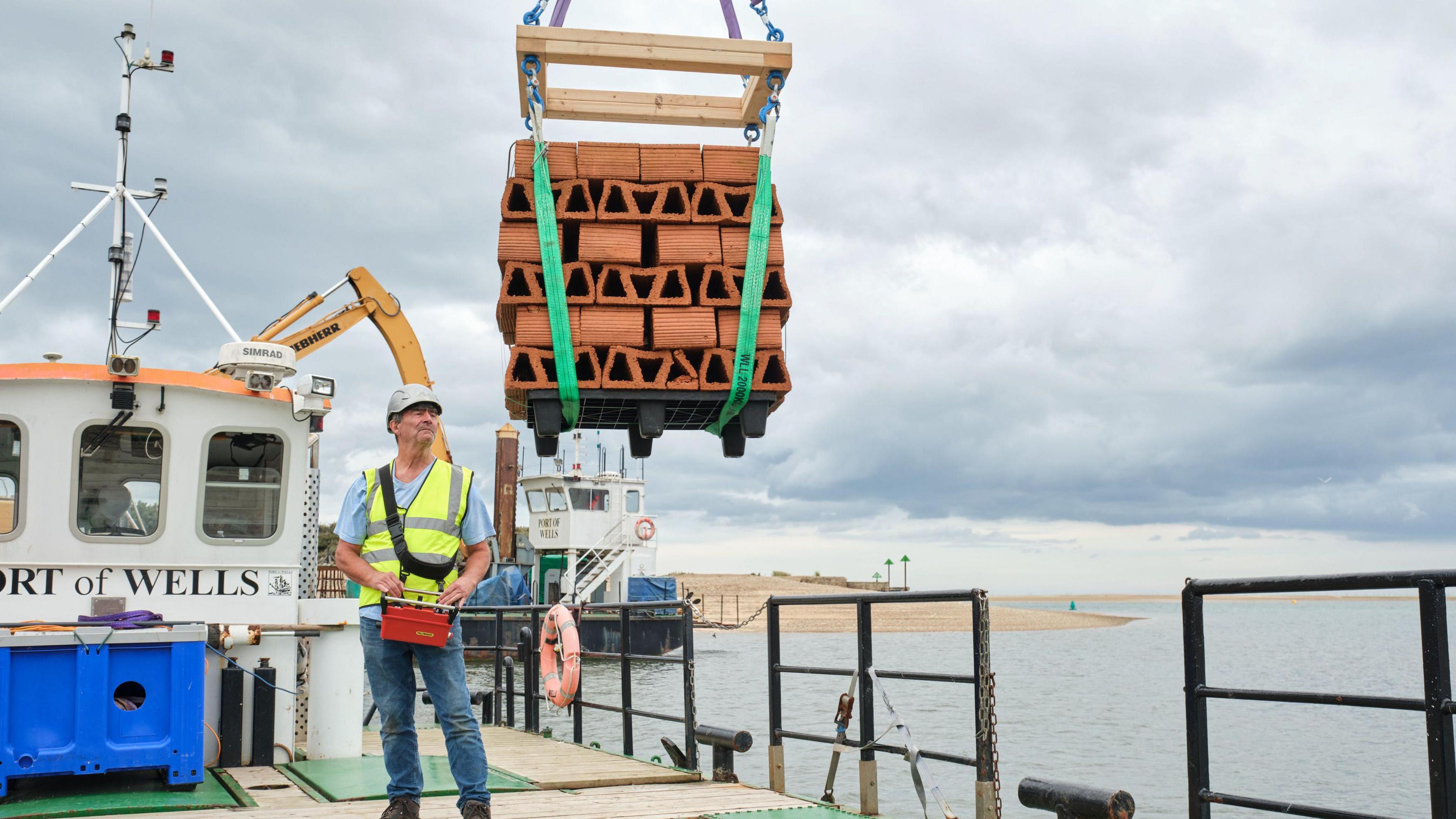Why the UK is getting a brand new oyster reef

- Published
Plans are in place for a new oyster reef in England, which aims to protect the species and improve the underwater life of UK seas.
Conservation group, Oyster Heaven, plans to place four million oysters off the Norfolk coast in England by the end of 2026.
Conservation means protecting wildlife and working to stop species from going extinct - or dying out.
Group founder George Birch said the reef would "act as a foundation for the whole ecosystem, generating an oasis of life on the seafloor".
More stories like this
- Published20 September 2024
- Published30 August 2024
- Published21 May 2021
WATCH: Meet the two boys trying to save Scottish oysters (from 2024)
What are oysters and why are they coming back to the UK?
Oysters are small animals whose, classed as shellfish, body is in a hard shell.
They used to be native to coastal areas around the UK, but a demand for cheap food after the Industrial Revolution meant that they were overfished and oyster numbers decreased.
The new project is part of efforts across the UK to bring them back.
Baby oysters, known as spats, will be placed on more than 40,000 specially-designed clay bricks - called mother reefs.
These have been placed underneath a seaweed farm, to prevent trawling, which is where fishing boats pull a large net behind them to catch sea creatures.

This image shows how much cleaner the water is with oysters doing their filtering magic
Piers Hart, aquaculture adviser for environmental charity the World Wildlife Fund (WWF), says it's great news - not just for oysters, but for wildlife and plants around them.
"There are a lot of benefits, but the main benefit is biodiversity and water quality improvement. Oysters filter the water and remove nutrients and help to clean up the coast."
A fully grown oyster can filter up to 200 litres a day - the same amount as a bathtub full of water.
Piers adds: "The reefs also provide some protection to the coastline because they break up the waves, as do the seaweed farms."

Whilst the reef is being built by humans, Oyster Heaven hopes it will be the start of a reef that looks after itself over time
